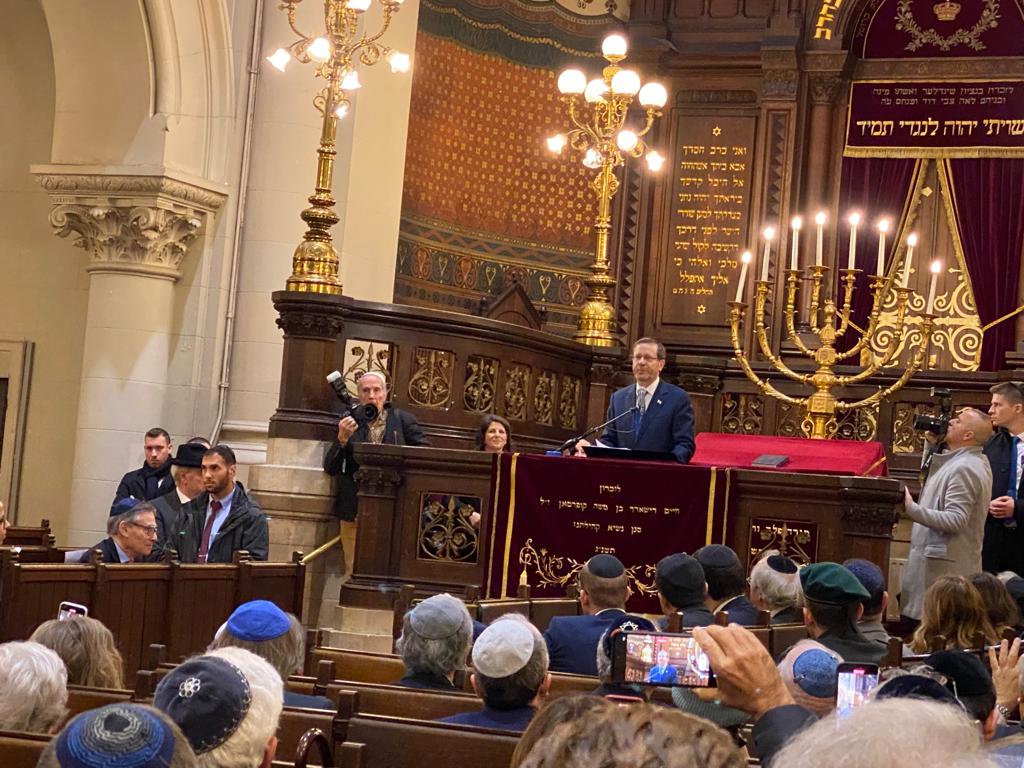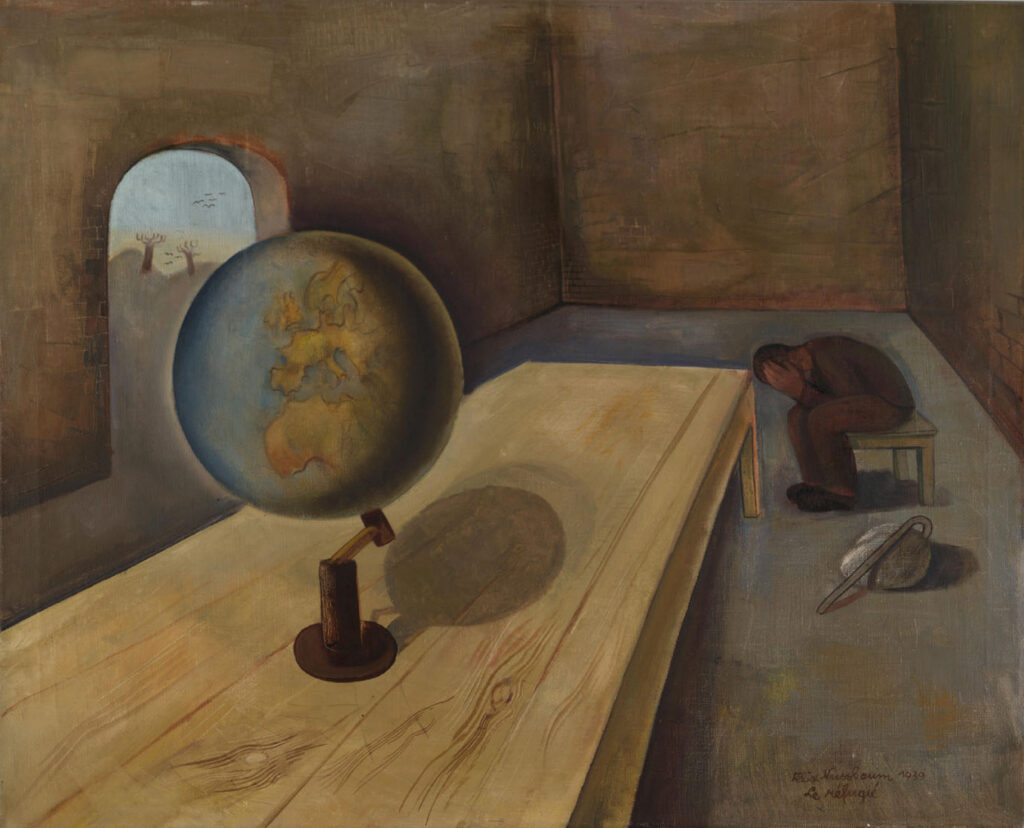President Isaac Herzog addressed the European Parliament on Thursday to commemorate the International Holocaust after meetings on Wednesday with the European President Ursula von der Leyen and the local Jewish community. He will also meet Jens Stoltenberg, the Secretary-General of NATO.
The International Day of Remembrance of the Victims of the Holocaust on 27 January was established by the United Nations in 2005 to commemorate the Holocaust and marks the liberation of the Auschwitz-Birkenau extermination camp by the Soviet Red Army on that day in 1945.
In recent years, UN and EU have issued statements condemning Holocaust denial and calling on more focus on education to learn about the Holocaust, keep the memory alive and counter the surge in antisemitism. In October 2021, the EU adopted a strategy on combatting antisemitism and fostering Jewish life in Europe which is currently implemented by the member states.
“The centerpiece of the visit, at the event to mark the International Holocaust Remembrance Day, where I shall address the European Parliament, fills me with a sense of sacred trepidation,” President Herzog said ahead of his journey.
“We must never forget that the Holocaust, the darkest abyss in human history, grew out of the fertile soil of the antisemitism that had spread through Europe for generations and tragically is rearing its head in many forms in the present day.”
He added that, “The historical responsibility borne by the whole family of nations—and the nations of Europe in particular—requires us to not only deepen our remembrance and commemoration but also to draw lessons, to educate, and to wage a persistent, determined, and most importantly common battle against antisemitism, racism, and xenophobia.”
European President Roberta Metsola and the Israeli President will unveil a replica of the artwork "The Refugee" by Felix Nussbaum from the art collection of Yad Vashem Art (the World Holocaust Remembrance Center in Jerusalem). Felix Nussbaum (1904 – 1944) was a Jewish-German painter who lived in Brussels until he was caught by the Nazis and deported to his death in Auschwitz.
The painting reflects Nussbaum’s fear and desperation on the eve of World War II. As Nazi-Germany’s threatening shadow sweeps across Europe, the artist is left with no escape route. “When I perish, do not allow my pictures to die with me. Show them to the people,” he is known to have said.
President Herzog will also open Yad Vashem's exhibition "Shoah: How was it Humanly Possible? in the European Parliament. The exhibition consists of 19 panels that deals with major historical aspects of the Holocaust, beginning with Jewish life in pre-Holocaust Europe and ending with the liberation of Nazi concentration and extermination camps.
Coinciding with the 2023 International Holocaust Remembrance Day, a new installation developed by Yad Vashem, entitled "The Book of Names of Holocaust Victims, will be inaugurated at the UN Headquarters as part of the Holocaust and the United Nations Outreach Programme on the Holocaust activities.
This monumental installation features the alphabetically arranged names of the millions of Holocaust victims currently documented and included in Yad Vashem's Central Database of Shoah Victims' Names. At the end of the Book of Names there are blank pages symbolizing more than one million identities yet to be recovered from the nameless murdered.

Israel's President Isaac Herzog speaking at the Great Synagogue of Europe in Brussels, 25 January 2023, credit: The Brussels Times
President Herzog also visited the Great Synagogue of Europe in Brussels. “Here we are together, in this unique, magnificent structure, this Great Synagogue of Europe. It is not just a building. It’s a masterpiece. It’s a symbol of the inalienable right of Jews to live as full and free citizens— in Europe and around the world.”
In his speech he referred indirectly to the current constitutional crisis in Israel where the new government has proposed a judicial ‘reform’ which threatens to undermine the rule of law and democracy in the county and which has met wide-spread protests. He has been asked to mediate between the government and the opposition to enable a decision taken in consensus.
“It is no secret that right now the Israeli collective is debating real questions that have direct bearing on the democratic and Jewish dimensions of our beloved country,” he said. “Jewish tradition has always valued conversation and argument and debate, because it allows us to learn from each other and work through the difficult questions.”
However, for the time being the two sides, each representing about half of the electorate, talk past each-other and the government appears determined to go ahead with a far-reaching overhaul of the judiciary and a change of the system of checks and balances. The changes might affect the close EU-Israeli relations that President Herzog discussed with Commission President von der Leyen.
M. Apelblat
The Brussels Times

